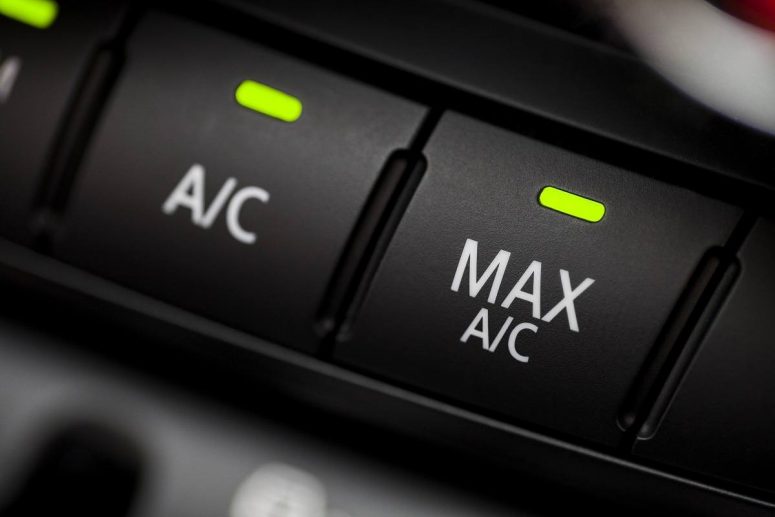Does Car AC Burn Gas?

When it comes to running your car’s air conditioning (AC), one common question arises: Does using the AC burn gas? The simple answer is yes, running the AC in your car does burn gas. However, the impact on fuel consumption depends on several factors, including your vehicle’s design, driving conditions, and how often you use the AC.
In this blog, we’ll explore the connection between car AC usage and fuel consumption, the reasons behind it, and tips to improve fuel efficiency.
How Does Car AC Work?
To understand why AC uses gas, it’s important to know how the system operates.
1. Role of the Compressor
The AC system in a car relies on a compressor to circulate refrigerant and cool the air inside your vehicle. The compressor is powered by the engine, which in turn uses fuel (gasoline or diesel) to run.
2. Energy Demand
When you turn on the AC, the compressor places an additional load on the engine. This increased demand requires more fuel to maintain the engine’s performance, leading to higher gas consumption.
How Much Gas Does the AC Use?
The amount of gas burned by the AC depends on several factors:
1. Vehicle Type
- Compact Cars: Smaller engines consume less fuel when running the AC compared to larger engines.
- SUVs and Trucks: Larger vehicles with bigger engines often consume more gas to power the AC.
2. Driving Conditions
- City Driving: The stop-and-go nature of urban driving increases the AC’s impact on fuel consumption.
- Highway Driving: The AC’s effect on gas mileage is less noticeable at steady speeds.
3. AC Settings
Running the AC at maximum power or in extreme heat conditions can increase fuel consumption.
On average, running the AC can reduce fuel efficiency by 5% to 10%, though this percentage varies based on the above factors.
Does It Make a Difference to Roll Down the Windows Instead?
Rolling down the windows is often suggested as an alternative to using the AC, but this comes with its own drawbacks.
1. Wind Resistance
At higher speeds (typically above 45 mph), open windows increase aerodynamic drag, which can lower fuel efficiency more than using the AC.
2. Best Practice
- In the City: Roll down the windows to save gas.
- On the Highway: Use the AC to maintain fuel efficiency and comfort.
Tips to Minimize Gas Usage While Using AC
You don’t have to give up comfort to save gas. Here are some tips to reduce the AC’s impact on fuel consumption:
1. Use the AC Wisely
- Avoid running the AC at full blast for long periods.
- Use the “recirculation” mode to maintain cool air without overloading the compressor.
2. Park in the Shade
Keeping your car cool when parked reduces the effort needed to cool it down when you start driving.
3. Ventilate Before Turning on the AC
Roll down the windows for a minute or two before using the AC to let hot air escape.
4. Maintain Your AC System
Regular maintenance, like checking refrigerant levels and ensuring the compressor is in good condition, helps the AC run efficiently.
5. Combine Trips
If possible, plan your errands to reduce the number of short trips where the AC is frequently turned on and off.
Frequently Asked Questions
1. Does running the heater burn gas?
No, the car’s heater uses heat generated by the engine, so it doesn’t place an additional load on the engine like the AC does.
2. Can using AC damage the engine?
No, using the AC won’t damage the engine as long as the system is well-maintained. However, it can put extra strain on an already weak or malfunctioning engine.
3. Does driving without AC save gas?
Yes, driving without AC reduces fuel consumption, but the savings may be minimal depending on your driving habits and conditions.
4. Is there an electric alternative to AC in gas-powered cars?
No, traditional gas-powered cars rely on the engine to power the AC. However, hybrid and electric vehicles use battery power for the AC system, which doesn’t directly affect fuel consumption.
Conclusion
Yes, using your car’s AC does burn gas, as the compressor draws power from the engine. The extent of fuel consumption varies depending on your vehicle, driving conditions, and how you use the AC. To strike a balance between comfort and fuel efficiency, follow best practices like using the AC wisely, maintaining your vehicle, and rolling down windows in the right conditions. With these tips, you can stay cool without drastically impacting your gas mileage.
Also Check:
• Does Using AC in a Car Use Gas?





